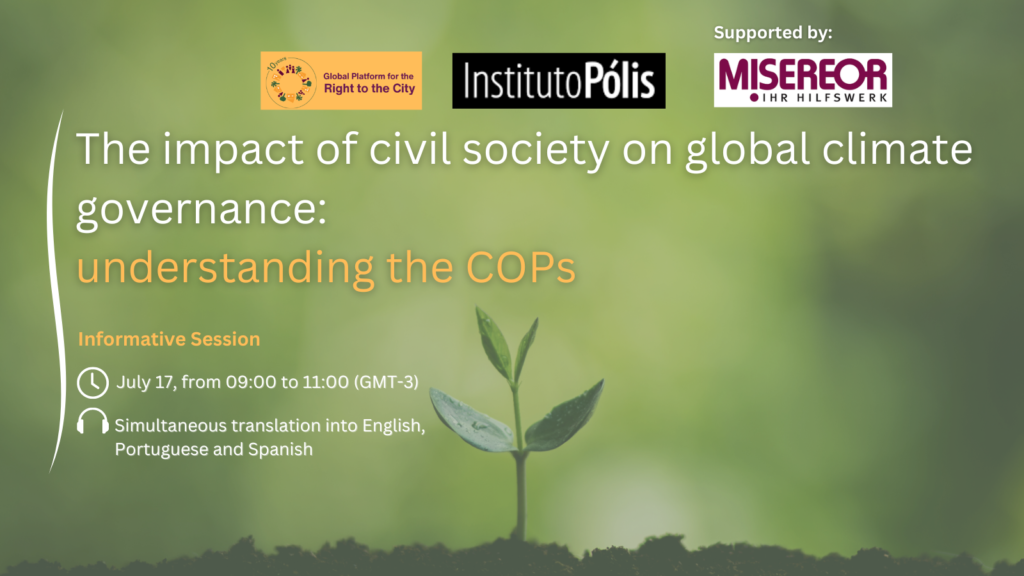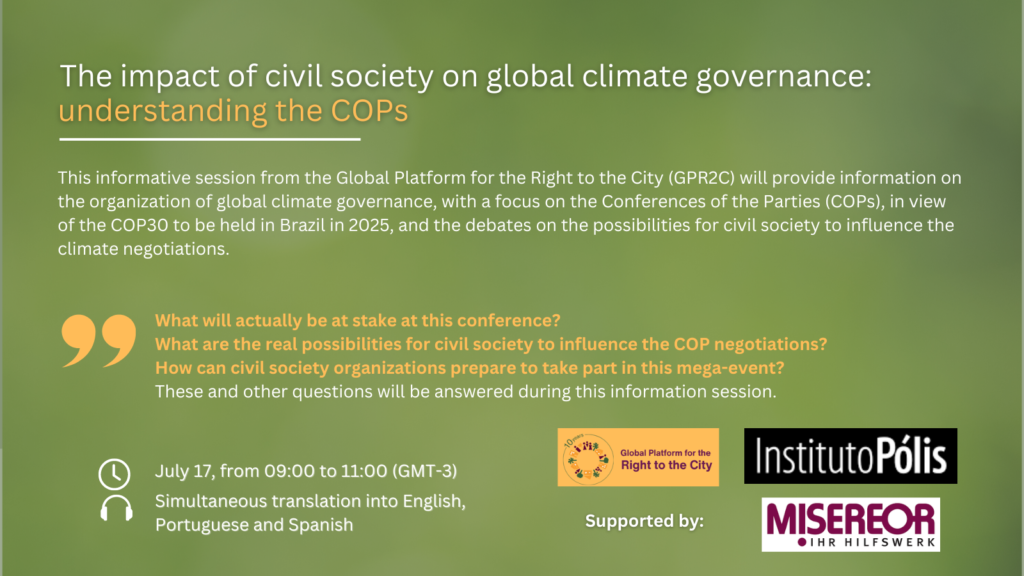
This informative session from the Global Platform for the Right to the City (GPR2C) will provide information on the organization of global climate governance, with a focus on the Conferences of the Parties (COPs), in view of the COP30 to be held in Brazil in 2025, and the debates on the possibilities for civil society to influence the climate negotiations.
The GPR2C, a global network of non-governmental organizations working to promote the right to the city, has sought to advance the debate and local action strategies on climate from the perspective of environmental and climate justice, with a territorial and rights-based approach. As part of these efforts, the platform seeks, on the one hand, to insert the right to the city into the current global debates on climate change, and on the other, to mobilize climate and territorial justice in urban debates.
Global climate governance is made up of a set of treaties, commitments and conferences, with the COP being one of its most recognized events. Held annually, the COP brings together various governmental and non-governmental actors around the main negotiations and debates on action against climate change. The COP, which will take place in 2025 in the city of Belém (Brazil), has mobilized a great deal of interest. But what will actually be at stake at this conference? What are the real possibilities for civil society to influence the COP negotiations? How can civil society organizations prepare to take part in this mega-event? These and other questions will be answered during this information session.
Objectives
- Introduce the general aspects of the organization of global climate governance (treaties, commitments, events and key themes).
- Introduce how the Conference of the Parties (COP) works and why the participation of urban organizations and social movements is important.
- Understand how civil society can influence this conference in view of COP 30 being held in Brazil (2025).
Practical information
- Wednesday, July 17, from 09:00 to 11:00 (GMT-3) (Check your local time here)
- Register here
- Simultaneous translation into English, Portuguese and Spanish will be available
Agenda
Session presentation
|
Introduction: How is global climate governance organized?
|
What are the COPs?
|
How can civil society influence COP 30?
|
| Dialogue with participants (questions and comments) |





